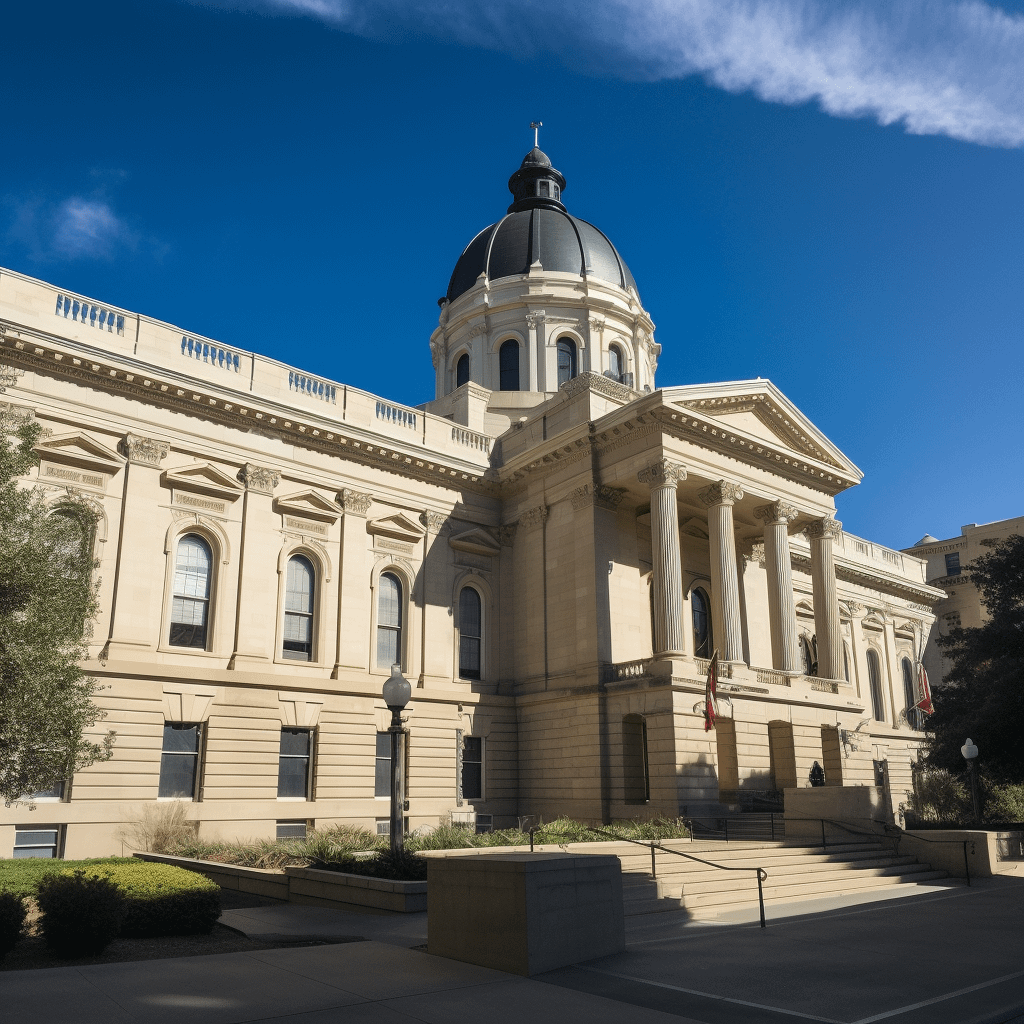Please leave your contact information and we will contact you as soon as possible.
Recognizing Adult Symptoms of Childhood Sexual Abuse
Childhood sex abuse is an unnerving problem in America, with research showing that child protective services substantiate a child sex abuse claim every nine minutes. It is not uncommon for a child who is being sexually abused to not process that what is happening is abuse, especially in situations where the child was groomed before the abuse took place. The repressed memories and trauma of childhood sexual abuse may manifest as adult symptoms of childhood sexual abuse in the form of mental, physical, sexual, and interpersonal difficulties, to no fault of the child.
Survivors may face a gamut of emotional turbulence including severe anxiety, profound depression, and unpredictable mood swings. Such turmoil often leads to engagement in self-destructive behavior, substance abuse, or challenges in fostering trust within intimate relationships, intricately linking back to the original trauma of childhood sexual abuse. Recognizing the signs of adult symptoms of childhood sexual abuse can be an essential part of supporting survivors and guiding them toward the right therapeutic interventions.
What Constitutes Child Sexual Abuse?
Child sexual abuse encompasses a wide range of abusive actions towards a child and is not limited to physical contact. It includes any act by an adult or older adolescent intended to stimulate either the adult or the child sexually.
This can involve direct physical contact such as intercourse, fondling, and molestation, as well as non-contact behaviors like exposure to pornography, voyeurism, and communicating in a sexually explicit manner via digital means or in person. Sadly, many children do not have the understanding or vocabulary to process and express that they are victims of abuse, making it even more critical for adults to educate themselves and be watchful for signs.
According to the Rape, Abuse, & Incest National Network (RAINN), child sex abuse can be defined as any sexual activity that involves a minor, as a child cannot consent to any form of sexual behavior. Childhood sex abuse is often physical but can also be mental and emotional. Examples of child sex abuse include:
- Exposing oneself to a minor
- Fondling or any sexual touching
- Masturbation in the presence of a minor or forcing a minor to masturbate
- Intercourse of any kind
- Inappropriate phone calls, text messages, or online messages
Creating, owning, or sharing child pornography from more pronounced symptoms in their everyday life as an adult.

Adult Manifestations Of Childhood Sexual Abuse
Adult survivors of childhood sex abuse often carry the trauma into their adult lives, manifesting in a variety of ways that can profoundly impact their daily functioning and quality of life. These manifestations can be diverse, affecting survivors emotionally, physically, psychologically, and in their social interactions. Trust issues and difficulties in forming or maintaining close relationships are common, as the abuse can warp perceptions of intimacy and security.
Survivors might also engage in self-destructive behaviors, such as substance abuse, self-harm, or eating disorders, as a means of coping with unresolved trauma. Additionally, there can be a pervasive sense of shame or guilt, wrongly placed upon themselves by the survivor.
These symptoms can be triggered or exacerbated by situations that remind them of the abuse, even subconsciously. Work, social engagements, and intimate relationships can become challenging to navigate, further isolating the individual.
Psychological Symptoms
The psychological impact of childhood sex abuse on adults can manifest in several profound and disruptive ways. Many survivors may find themselves grappling with severe depression and anxiety, which can stem from the trauma experienced in their youth. These conditions often go beyond typical stress or sadness, profoundly affecting an individual’s ability to function day-to-day.
Post-Traumatic Stress Disorder (PTSD) is another common consequence, characterized by flashbacks, nightmares, severe anxiety, and uncontrollable thoughts about the abuse. Survivors may also exhibit behavioral sequelae, such as self-harming behaviors, substance abuse, eating disorders, relationship difficulties, and sexual dysfunction. These symptoms often stem from the deep emotional wounds caused by the initial trauma, and addressing them may require therapeutic interventions that help individuals process their experiences, reframe their beliefs about themselves and their relationships, and develop healthy coping mechanisms.
Physical Symptoms
The physical symptoms experienced by adult survivors of childhood sex abuse can be both direct and indirect, stemming from the trauma they endured. Many survivors may face chronic pain without a clear medical diagnosis, including headaches, gastrointestinal issues, and musculoskeletal pains. This somatic pain is often a physical manifestation of the psychological stress and anxiety harbored from their abuse.
Additionally, survivors might experience sexual health issues, such as discomfort during intercourse, pelvic pain, or unexplained gynecological problems, which can be directly related to their past trauma. It’s not uncommon for these physical ailments to be intertwined with psychological distress, creating a cycle that exacerbates both physical and emotional pain.
Sleep disturbances, including insomnia or nightmares, are frequent, as the trauma can disrupt the survivor’s ability to find restful sleep. Immune system dysfunctions, leading to more frequent infections or illnesses, can also occur as the body’s stress response is constantly activated, wearing down its natural defenses.
Sexual Symptoms
Adult survivors of childhood sex abuse may encounter a range of sexual symptoms that reflect the impact of their trauma. These can include aversions to sexual intimacy, difficulty in experiencing sexual pleasure, or conversely, engaging in risky sexual behaviors. Some individuals may find themselves avoiding physical contact altogether due to deep-seated associations of touch with the trauma they experienced.
Others might struggle with understanding or expressing their sexual desires, leading to confusion and conflict within their intimate relationships. Dysfunctions such as erectile disorder in men and vaginismus (involuntary muscle spasms that prevent vaginal penetration) in women are not uncommon, directly stemming from psychological triggers linked to past abuse. Additionally, there can be an intense fear of sex or an unhealthy relationship with sexual activities, where sex is either completely shunned or excessively indulged in as a means of coping or reclaiming control.
Effect on Interpersonal Relationships
The trauma of childhood sex abuse can significantly disrupt the ability to form and maintain healthy interpersonal relationships in adulthood. Survivors might find themselves struggling with trust issues, making it challenging to open up and connect with others on a deeper level. This mistrust can stem from the betrayal felt from the abuse, especially if the perpetrator was someone close and trusted.
Consequently, survivors may either withdraw socially, fearing further betrayal, or enter into relationships that mirror the unhealthy dynamics of their past abuse, perpetuating a cycle of emotional distress. Communication difficulties are common, as expressing emotions and needs may feel unsafe or unfamiliar.
Intimacy issues can further complicate romantic relationships, with survivors possibly oscillating between the extremes of avoidance and neediness in an attempt to navigate their conflicting desires for closeness and safety. The fear of experiencing similar abuse can also lead to controlling or overly protective behavior towards children or loved ones.
Uncovering Repressed Memories of Abuse
Repressed memories of CSA often surface in adulthood as flashbacks or intrusive thoughts, previously hidden by the mind for self-protection. Many adults experience flashbacks of memories they didn’t realize they had due to triggers that prompt the recall of traumatic events, such as certain sights, sounds, smells, or situations that are reminiscent of the abuse. These triggers can disrupt the individual’s sense of safety and stability, leading to the sudden resurgence of repressed memories.
In cases where adult CSA survivors uncover repressed memories of abuse, the law can provide a means for seeking justice and accountability. Survivors may be able to file a lawsuit against the perpetrator for the sexual abuse they endured, holding them legally responsible for their actions. Additionally, legal action can also be taken against a negligent third party, such as a troubled teen industry or other entity that failed to protect the survivor from harm or enabled the abuse to occur.

Resources for Survivors of Sexual Abuse
See below for some reliable resources for survivors of sexual abuse:
- Darkness to Light: An organization committed to preventing child sexual abuse and providing resources for survivors and their families. They offer online training, educational materials, and support services.
- RAINN: RAINN, or the Rape, Abuses & Incest National Network, is the largest anti-sexual violence organization in the US and operates the National Sexual Assault Hotline (800-656-HOPE).
- NSVRC: NSVRC (The National Sexual Violence Resource Center) is a lead nonprofit that translates research regarding sexual violence into solutions and best practices to create lasting change.
- Joyful Heart Foundation: Created by Mariska Hargitay in 2004, Joyful Heart Foundation is a national organization committed to changing the way the public responds to sexual assault and domestic violence through advocacy and education.
- 1in6: This organization focuses on supporting male survivors of sexual abuse and provides valuable resources, online support groups, and educational materials.

How a Childhood Sexual Abuse Lawyer Can Help You
A childhood sexual abuse lawyer specializes in navigating the legal intricacies that survivors face by offering guidance through the process of filing a lawsuit, negotiating settlements, and representing your interests in court. These lawyers are not only versed in the laws pertaining to sexual abuse but also understand the delicate nature of these cases and offer a compassionate approach. By advocating on your behalf, they ensure your voice is heard and work tirelessly to secure the justice and compensation you deserve, all while safeguarding your privacy and emotional well-being throughout the legal journey.
Some states have extended the statute of limitations for child sex abuse claims, giving survivors more time to file a lawsuit. In some cases, the statute of limitations may be extended if the victim was under 18 years old at the time of the abuse or if he or she didn’t discover the abuse until later in life. If you think your state has extended its statute of limitations, contact an attorney who specializes in child sex abuse cases for more information about how this could affect your case.

Recognizing Adult Symptoms of Childhood Sex Abuse: FAQ
Here are some of the more common questions we receive concerning recognizing the adult symptoms of childhood sex abuse.
1. How Do You Prevent Child Sexual Abuse?
Preventing child sexual abuse involves a community-wide effort that begins with education and awareness. Teach children about body autonomy and the importance of setting boundaries, empowering them to say no to unwanted touch and to tell a trusted adult about any uncomfortable situations. Adults should be vigilant and learn the signs of abuse to intervene early.
Background checks and strict policies in organizations that work with children can deter potential abusers. Open conversations about sexual abuse and its consequences within families, schools, and communities can create a protective environment that discourages abuse and supports survivors in coming forward.
2. What Is Grooming?
Grooming is a manipulative process used by abusers to gain the trust of a child and those around them in preparation for sexual abuse. It involves building a seemingly caring relationship to establish an emotional connection and dependency.
Through this process, the abuser seeks to normalize inappropriate behavior and silence the child, making it difficult for the victim to recognize the abuse or come forward. Tactics can include giving gifts, offering special attention, and isolating the child from others.
3. Do I Have Repressed Trauma?
Determining if you have repressed trauma, particularly from childhood sexual abuse, involves introspection and professional guidance. Signs might include unexplained anxiety, phobias, or intense reactions to specific triggers that seem disproportionate to the situation. Nightmares or flashbacks without clear origins, inexplicable gaps in childhood memories, or sudden mood swings might also hint at underlying issues.
4. What Is Child Maltreatment?
Child maltreatment encompasses a wide range of abusive actions toward children, including physical, emotional, and sexual abuse, as well as neglect. It refers to behaviors that harm the child’s health, survival, development, or dignity by a caregiver or someone in a position of responsibility, trust, or power. Maltreatment can significantly affect a child’s emotional well-being and development, leading to long-term psychological and physical issues.
5. Is It Possible to Heal from Childhood Trauma?
Healing from childhood trauma is a personalized journey that can succeed with time, patience, and professional assistance. While scars may linger, healing fosters control, meaning, and a resilient future. Engaging in therapy, finding supportive communities, and practicing self-care are vital steps on the path to recovery.
6. How Long Does It Take to Heal from Childhood Trauma?
The healing journey from childhood trauma varies greatly among individuals and depends on various factors, including the nature of the trauma, the support system available, and the methods of therapy pursued. There’s no predefined timeline for healing; for some, it may take years, while others might find a sense of resolution quicker. Healing is a deeply personal process that unfolds at its own pace.
7. Can a Childhood Sex Abuse Lawyer Help Collect Evidence from the Abuse that Happened Years Ago?
Yes, a childhood sexual abuse lawyer can assist in gathering evidence for cases that occurred many years ago. Even if the abuse happened decades ago, a skilled and experienced sex abuse lawyer knows how to navigate these challenges and can work to find the necessary proof to support a claim.
Speak with a Childhood Sex Abuse Lawyer
Childhood sexual assault is a revolting and devastating crime that can affect all aspects of the survivor’s life for decades after the abuse occurred. While the damage can not be undone from the perpetrator’s acts, financial compensation can help the survivor access the medical and mental health resources needed to heal.
If you or a loved one were sexually abused as a child or are experiencing repressed memory symptoms, contact Edwards Henderson today to speak with a compassionate childhood sex abuse lawyer. Our law firm offers free and confidential legal consultations.
Article Sources
-
RAINN
https://rainn.org/statistics/children-and-teens -
American College of Obstetricians and Gynecologists
https://www.aaets.org/traumatic-stress-library/adult-manifestations-of-childhood-sexual-abuse -
ACOG Clinical
https://www.acog.org/clinical/clinical-guidance/committee-opinion/articles/2011/08/adult-manifestations-of-childhood-sexual-abuse -
Helping Survivors
https://helpingsurvivors.org/child-sexual-abuse/long-term-effects/ -
VeryWellMind
https://www.verywellmind.com/was-i-sexually-abused-21947 -
National Sexual Violence Research Center
https://www.nsvrc.org/ -
Joyful Heart Foundation
https://www.joyfulheartfoundation.org/ -
1in6
https://1in6.org/ -
Darkness to Light
https://www.d2l.org/



